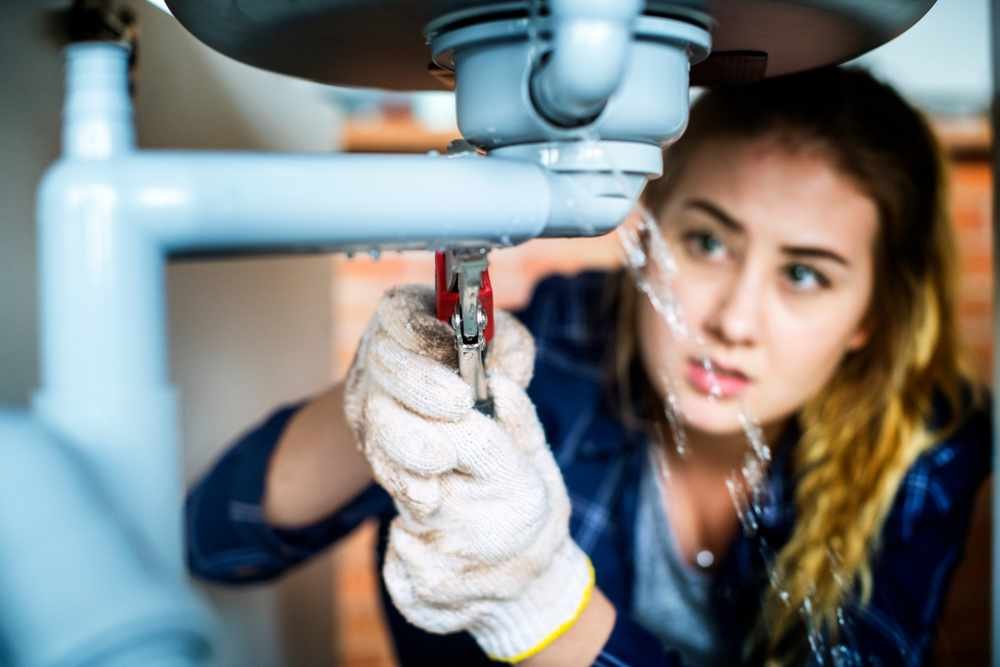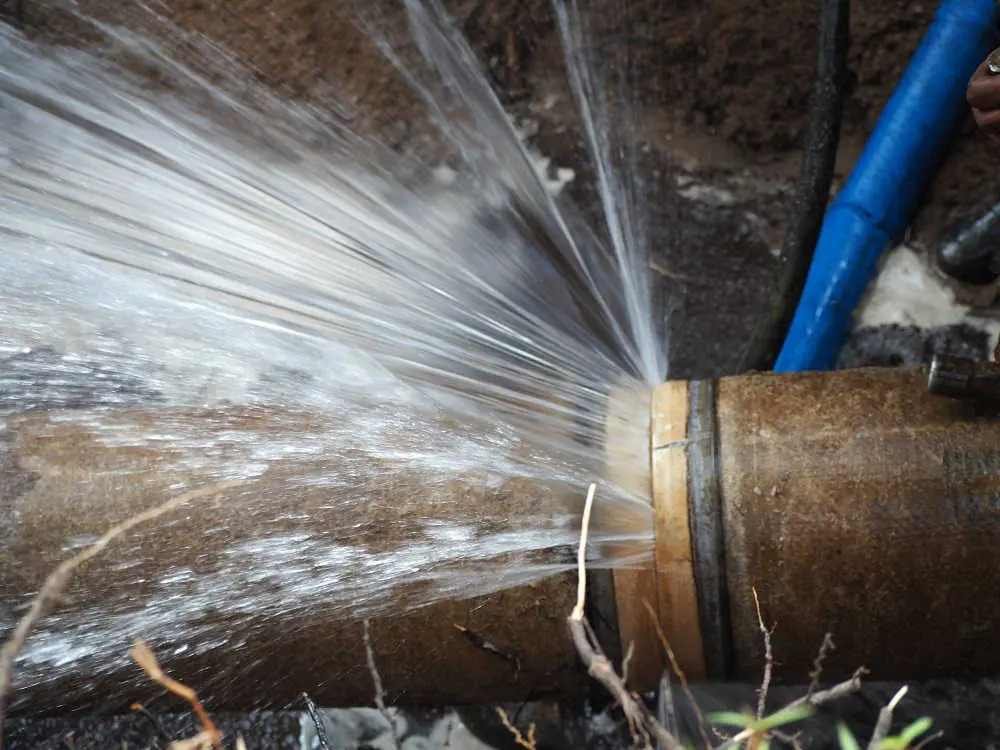You might think a small pipe leak is no big deal, just a minor inconvenience. But those little drips can quickly turn into major headaches if left unchecked. From causing water damage and mold growth to risking electrical issues and increasing your water bills, ignoring even a small leak can lead to big problems down the line. In this guide, The Pro Plumbing will dive into why it’s crucial to address those tiny leaks before they escalate into serious damage. Trust us—taking care of them sooner rather than later can save you a lot of stress, time, and money. Let’s explore why those little leaks should never be underestimated!
Gradual Water Damage
One of the most immediate consequences of a small pipe leak is gradual water damage to your home’s interior. Initially, you might notice minor damp spots or discoloration on walls and ceilings. However, over time, these small leaks can lead to more severe water damage. Water can seep into drywall, insulation, and wooden structures, causing them to weaken and deteriorate. This process can be slow, making it easy to overlook, but the cumulative effect can lead to significant structural issues that require extensive repairs.
Drywall, for example, is particularly susceptible to water damage. When it becomes saturated, it can lose its structural integrity, leading to sagging and eventually collapse. Insulation can also become ineffective when wet, reducing its ability to regulate temperature and potentially leading to increased heating and cooling costs. Leak detection service helps prevent this kind of progressive damage, saving you from more costly and invasive repairs down the line.
Mold and Mildew Growth
Small leaks create a persistent damp environment that is ideal for the growth of mold and mildew. These fungi thrive in moist conditions and can start to proliferate within 24 to 48 hours of water exposure. Mold and mildew not only damage your home’s materials but can also pose serious health risks.
Exposure to mold spores can lead to a range of health problems, including respiratory issues, allergies, and asthma. Mold can spread quickly, often requiring professional remediation to fully address the problem. Removing mold and mildew involves cleaning and disinfecting affected areas, and sometimes replacing contaminated materials, which can be both time-consuming and expensive. By addressing leaks early, you can significantly reduce the risk of mold and mildew growth and protect both your home and your health.
Increased Water Bills
Even small leaks can lead to a noticeable increase in your water bill. Over time, the continuous flow of water from a leaking pipe adds up, leading to higher utility costs. While the amount of water wasted from a minor leak may seem negligible on a daily basis, it can accumulate significantly over weeks and months.

Regularly checking for leaks and addressing them promptly helps manage your water usage and keep your utility bills in check. In addition to saving money, conserving water is an important environmental responsibility. By maintaining your plumbing system and fixing leaks as they arise, you contribute to more sustainable water use.
Structural Damage
The impact of small pipe leaks extends beyond immediate water damage; it can lead to structural damage as well. As water seeps into wooden framing, floors, and ceilings, it can weaken these critical structural elements. Over time, the wood can become soft and compromised, leading to potential issues such as sagging floors, warped ceilings, and even structural collapse in severe cases.
The damage caused by leaks can be progressive, making it crucial to address any signs of water leakage as soon as they are detected. Regular inspections and timely repairs can prevent more extensive and costly structural damage, ensuring the safety and stability of your home.
Corrosion and Pipe Damage
Small leaks can also contribute to the corrosion and deterioration of the pipes themselves. Water continuously leaking from a pipe can lead to rust and corrosion, particularly in metal pipes. Over time, this can weaken the pipe, making it more prone to further leaks or even bursts.
Corrosion not only affects the integrity of the pipes but can also lead to additional issues such as reduced water flow and contamination. Repairing or replacing corroded pipes often requires professional assistance and can be expensive. Regular maintenance and prompt repair of leaks can help prevent corrosion and prolong the lifespan of your plumbing system.
Pest Infestations
Finally, the damp conditions created by small pipe leaks can attract pests such as termites, ants, and rodents. These pests thrive in moist environments and can cause further damage to your home. For instance, termites feed on wood, and a damp environment can increase their attraction to your home’s wooden structures.
Pest infestations can lead to additional problems and expenses, including damage to structural elements, insulation, and even electrical wiring. Addressing leaks quickly helps maintain a dry environment that is less inviting to pests, protecting your home from additional damage.
Risk of Electrical Damage
Ignoring small pipe leaks can also pose a risk to your home’s electrical system. When water leaks from pipes, it can come into contact with electrical wiring, outlets, or appliances. This interaction between water and electricity is dangerous and can lead to short circuits, electrical fires, and damage to electrical components.
Water and electricity are a dangerous combination. Even minor leaks can lead to electrical malfunctions that can result in power outages or hazardous conditions. For instance, water seeping into electrical outlets can cause arcing, which is a potential fire hazard. Regular inspections of both plumbing and electrical systems can help identify and mitigate these risks, ensuring the safety of your home and its occupants.
Foundation Issues
Small leaks that persist over time can affect the foundation of your home. As water seeps into the soil around your foundation, it can cause soil erosion and lead to changes in the soil’s stability. This can create pressure on the foundation, potentially causing it to shift or crack.
Foundation issues are serious and can result in costly repairs if not addressed promptly. Cracks in the foundation can lead to further water infiltration, worsening the problem and potentially affecting the structural integrity of your home. Preventing water from accumulating around the foundation by fixing leaks and ensuring proper drainage is essential for maintaining a stable and secure foundation.
Increased Risk of Flooding
Even small leaks can increase the risk of flooding in your home. If a small leak is left unattended, it can escalate into a larger problem, especially if it weakens the surrounding materials or causes blockages in drainage systems. In severe cases, a persistent leak can lead to significant water accumulation, resulting in localized flooding.

Flooding, whether minor or extensive, can cause severe damage to your home’s interior, including floors, walls, and furnishings. Additionally, the cleanup and repair process can be labor-intensive and costly. By addressing small leaks early, you can prevent them from developing into more serious flooding issues.
Reduced Property Value
Prolonged damage from small leaks can impact the value of your property. Potential buyers are likely to be concerned about the history of water damage, mold growth, or structural issues that may have resulted from neglected leaks. These problems can affect a property’s marketability and value.
Addressing leaks and maintaining your home in good condition helps preserve its value and appeal to potential buyers. Investing in regular maintenance and repairs ensures that your property remains in top shape, contributing positively to its overall market value.
Compromised Insulation Efficiency
Leaks can affect the efficiency of your home’s insulation. When insulation becomes wet from a leaking pipe, it loses its effectiveness at regulating temperature. This can result in increased heating and cooling costs as your HVAC system has to work harder to maintain the desired temperature.
Efficient insulation is crucial for energy conservation and maintaining comfortable living conditions. By repairing leaks promptly and keeping insulation dry, you help ensure that your home remains energy-efficient and that your HVAC system operates optimally.
Damage to Personal Belongings
Small leaks can lead to damage to personal belongings stored in areas affected by water. Items such as furniture, clothing, electronics, and sentimental objects can be ruined by water exposure. Even minor leaks can cause significant damage if they affect valuable or irreplaceable items.
Protecting your belongings from water damage involves addressing leaks as soon as they are detected. Ensuring that affected areas are repaired and kept dry helps safeguard your personal possessions and prevents additional costs associated with replacing or repairing damaged items.
Increased Maintenance Costs
Neglecting small pipe leaks can lead to increased overall maintenance costs. The longer a leak is left unaddressed, the more extensive the damage can become, leading to more complicated and expensive repairs. From structural damage and mold remediation to electrical repairs and pest control, the costs associated with dealing with the aftermath of a neglected leak can add up quickly.
Regular maintenance and timely repairs are key to preventing small issues from escalating into major problems. By staying on top of leaks and addressing them promptly, you can minimize the need for costly repairs and keep maintenance expenses under control.
Conclusion
In conclusion, small pipe leaks may seem insignificant, but they can lead to a cascade of serious problems if left unattended. From water damage and mold growth to increased utility bills and potential structural issues, the impact of ignoring these leaks can be substantial and costly. Addressing them promptly not only helps preserve the integrity of your home but also saves you from more extensive and expensive repairs in the future. Regular inspections and maintenance are key to catching these issues early and ensuring your home remains safe, efficient, and comfortable. Don’t underestimate the power of a small leak—taking action now can prevent bigger headaches later.





